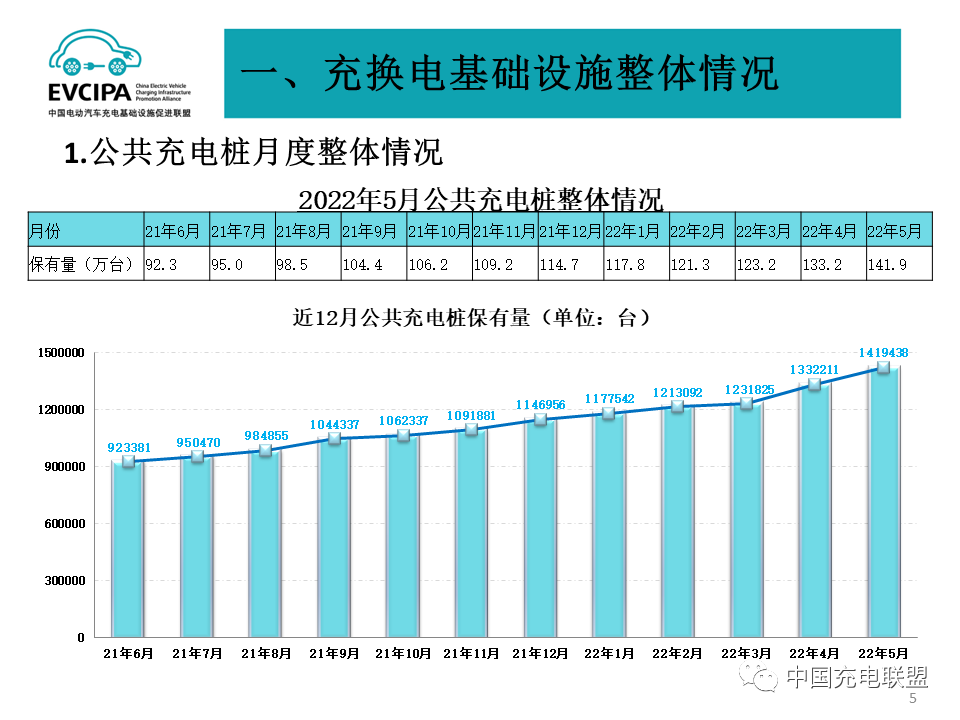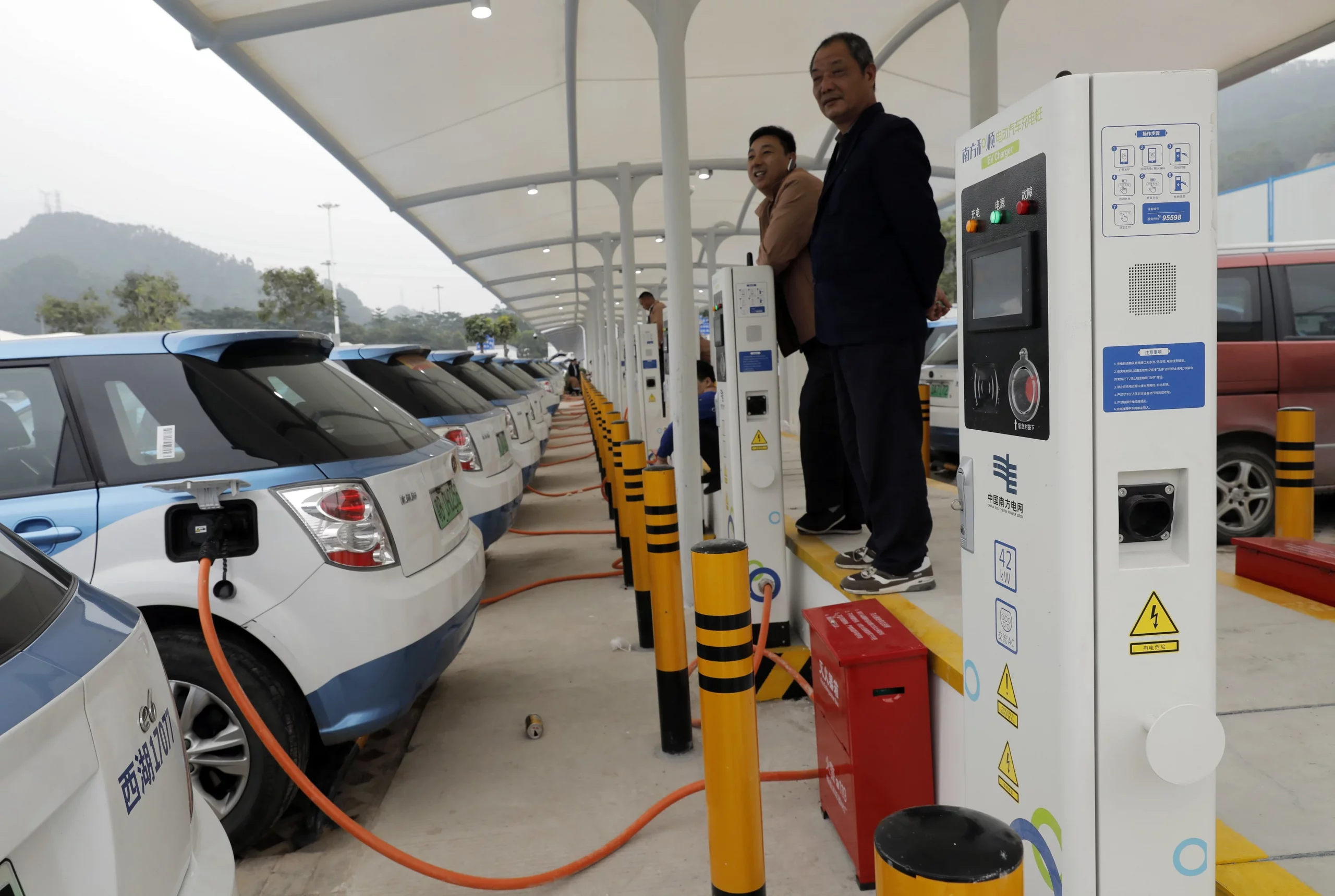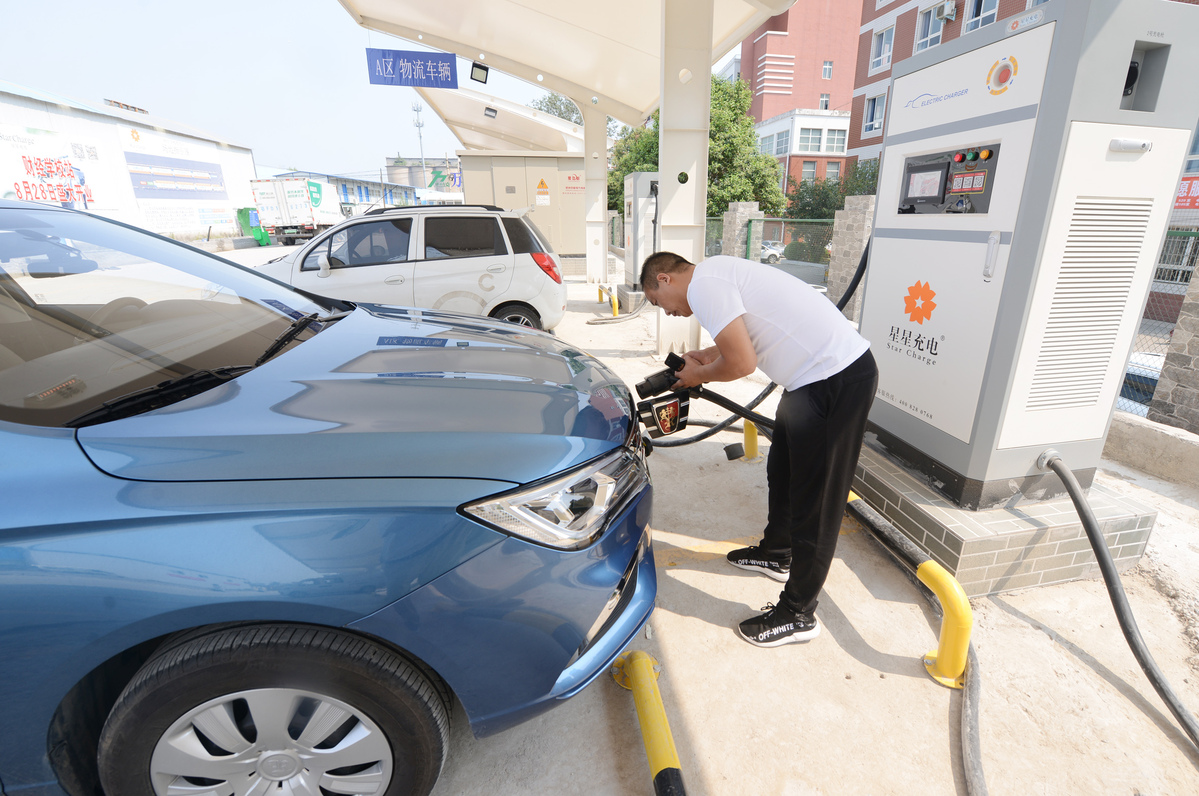Over the years, the electric vehicle industry has been rapidly growing and as more and more road users are using electric vehicles (EVs), the number of EV charging stations should also increase not only to meet demand but also for the convenience of topping up the EV wherever whenever.
As the world’s largest market for EVs, China knows that for EVs to be accessible to the general public, not only do they have to be affordable but also widely available and convenient to use. Thus, the country has publicly owned (not privately owned) EV charging stations that can charge most non-proprietary EVs on the road.
The China Electric Vehicle Charging Infrastructure Promotion Alliance, abbreviated as EVCIPA, has published a report this week that announces that the country has successfully built 87,000 new public EV charging stations across the country in just only the month of May 2022, compared YoY to 2021, the number of EV charging stations has increased by 60.5%.

As of May 2022, the EVCIPA reported that there are a total of 1.419 million public EV charging stations across the entire country of China, which include 613 thousand DC charging stations, 806 thousand AC charging stations, and 485 AC-DC integrated charging stations.
In the report, EVCIPA notes the top 10 provinces that have the most public EV charging stations in the country (as of May 2022) and its ranking is as shown:
- Guangdong – 281,000 units
- Shanghai – 109,000 units
- Jiangsu – 107,000 units
- Zhejiang – 103,000 units
- Beijing – 102,000 units
- Hubei – 81,000 units
- Shandong – 71,000 units
- Anhui – 67,000 units
- Henan – 55,000 units
- Fujian – 51,000 units
The report notes that just these 10 provinces account for 72.3% of all public EV charging stations available across the country. The electricity generated is mainly utilised on electric buses and privately owned electric vehicles, with honourable mentions such as China’s electric logistics vehicles and electric taxis, that account for a smaller proportion of the transportation electricity grid.

In May 2022, the total EV charging electricity power consumption nationwide was about 1.56 billion kWh in a month, an increase of 140 million kWh from the previous month, an increase of 83.1% year-on-year, and a month-on-month increase of 10.0%.
China’s public EV charging infrastructure however is not monopolised by only one company, instead, EVCIPA notes that there are 15 top companies in the country operating the EV charging stations for the public. The full list of the Top 15 companies is as follows with their units of charging stations in China counted:
- Xingxing Charge – 278,000 units
- Special Call – 277,000 units
- State Grid – 196,000 units
- Cloud Quick Charge – 178,000 units
- Xiaoju Charger – 71,000 units
- Weijingyun – 51,000 units
- Shenzhen Automotive Power Grid – 46,000 units
- China Southern Power Grid – 41,000 units
- Yiwei Energy – 37,000 units
- Huijingyun – 33,000 units
- SAIC Anyue – 24,000 units
- Wanma Aichong – 23,000 units
- Wancheng Wancharge – 22,000 units
- China Potevio – 21,000 units
- Weilan Quick Charger – 13,000 units
All these 15 charging station operators accounted for 92.4% of the total public EV charging stations across the country, and the remaining operators accounted for 7.6% of the total figure.

On a closing note, the report findings state that despite more EVs on the road, EV users need not worry about fighting for a spot at the charging station because EV charging stations are popping up in the country more rapidly than ever. In fact, the current ratio of stations to EVs in China is 1:2.1, which means that the construction of new EV charging stations can still keep up with the demand from EV users on the road.
RELATED:
- Huawei Next Electric Vehicle Certified on China’s MIIT Database, Here Are The Details of the AITO M7
- Huawei Officially Patents a Quantum Computer
- China’s wearable market declines 7.5 percent YoY in Q1, 2022, ships 25.84 million units: IDC
- Apple moves its iPad production from China to Vietnam due to supply chain shortages
(Via)







